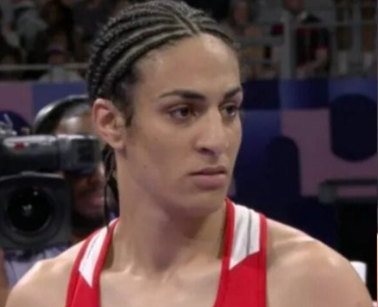The 2024 Paris Olympics has seen a spotlight on a sensitive and complex issue: gender eligibility in sports. The cases of Algerian boxer Imane Khelif and Taiwanese boxer Lin Yu-ting have raised questions about who qualifies to compete in women’s categories, highlighting the challenges of gender verification in sports.
Khelif and Lin, both initially disqualified from the 2023 women’s boxing world championships due to failing gender eligibility tests, have been cleared by the International Olympic Committee (IOC) to compete in Paris. This clearance allows them to participate, as they did at the Tokyo Games in 2021, despite controversies and setbacks.
International Boxing Association Breaks Silence and Slams Olympic Committee After Allowing Boxers Who Failed Gender Tests to Compete at Paris Olympics 2024 https://t.co/VI3ZDdURmZ
— Brad Porcellato (@BradPorcellato) August 1, 2024
Imane Khelif, a silver medalist at the 2022 world championships, is scheduled to fight Angela Carini of Italy in the welterweight division. Lin Yu-ting, a two-time world champion, will face Sitora Turdibekova of Uzbekistan in the featherweight category. The discussion around their eligibility has brought to light the complexities and sensitivities surrounding gender verification in sports.
Australian boxer Tiana Echegaray expressed the sentiment of uncertainty among athletes, stating, “Yeah, it’s really tricky,” when asked about the situation. The IOC’s spokesperson, Mark Adams, emphasized that no personal medical information would be disclosed and confirmed that the boxers met all eligibility requirements, including those related to sex and age.
At the Olympics, the IOC typically defers gender eligibility decisions to the international federations governing each sport. However, the IOC provides a nonbinding framework for these federations to follow. The situation has been further complicated in boxing, where the International Boxing Association (IBA) has faced controversy and was sidelined by the IOC, leading to the establishment of an ad-hoc unit to oversee Olympic boxing events.
The IBA maintained control over the world championships and enforced strict gender eligibility rules. After Khelif and Lin competed at the 2023 world championships, winning bronze and gold medals respectively, they were disqualified based on medical eligibility tests that reportedly revealed they had XY chromosomes. This decision stirred controversy, raising questions about the fairness and transparency of gender testing in sports.
The issue of gender verification is not new in athletics. Similar controversies have arisen in other sports, most notably in the case of South African runner Caster Semenya, a two-time Olympic gold medalist who was forced to stop competing in certain events due to naturally high testosterone levels. These cases highlight the challenges of balancing fair competition with respect for athletes’ rights and identities.
Here is another article quote: ” Two boxers who failed testosterone and gender eligibility tests last year have been cleared by the International Olympic Committee to fight in the women’s category in Paris.”https://t.co/rfU4BBA7Ly
— Lisa Rosestars (@LRosestars) August 1, 2024
The criteria for eligibility can be complex. According to IOC’s Adams, a passport indicating gender is a key document in these cases. Adams clarified that Khelif and Lin’s issues were not related to being transgender, a common misconception. He noted that testing solely based on testosterone levels is not an infallible method, as many women naturally have varying levels of testosterone.
The controversy also mirrors recent debates in the United States, such as the case of swimmer Lia Thomas, the first openly transgender athlete to win an NCAA championship. The rules around transgender athletes and gender verification are evolving, with organizations like the NCAA and World Aquatics updating their guidelines to address these sensitive issues.
Lin Yu-ting, 28, has a decorated amateur career with gold medals at the 2019 and 2022 world championships. Standing at 5-foot-9, she often has a height advantage in her bouts. Khelif, 25, who debuted in 2018, also has a successful record, including a silver medal at the 2022 world championships. Both athletes were disqualified from their respective competitions in 2023 after winning multiple fights, which were later annulled.
Olympics allows boxers banned over gender eligibility to compete against women
This is where the controversy started.. https://t.co/NRGpMgggSm
— سیاسی بات (@Siyasi_Aadmi) August 1, 2024
Key Points:
i. Algerian boxer Imane Khelif and Taiwanese boxer Lin Yu-ting cleared to compete in the 2024 Paris Olympics despite earlier disqualifications.
ii. Both boxers were disqualified from the 2023 world championships for failing gender eligibility tests, with reported findings of XY chromosomes.
iii. The IOC defers gender eligibility decisions to international federations but provides a nonbinding framework.
iv. The IBA’s control over boxing’s gender eligibility rules has been controversial, with recent disputes over transparency and fairness.
v. The controversy highlights ongoing challenges in balancing fair competition with respect for athletes’ rights and identities, amidst evolving guidelines on gender verification.
Charles William III – Reprinted with permission of Whatfinger News



